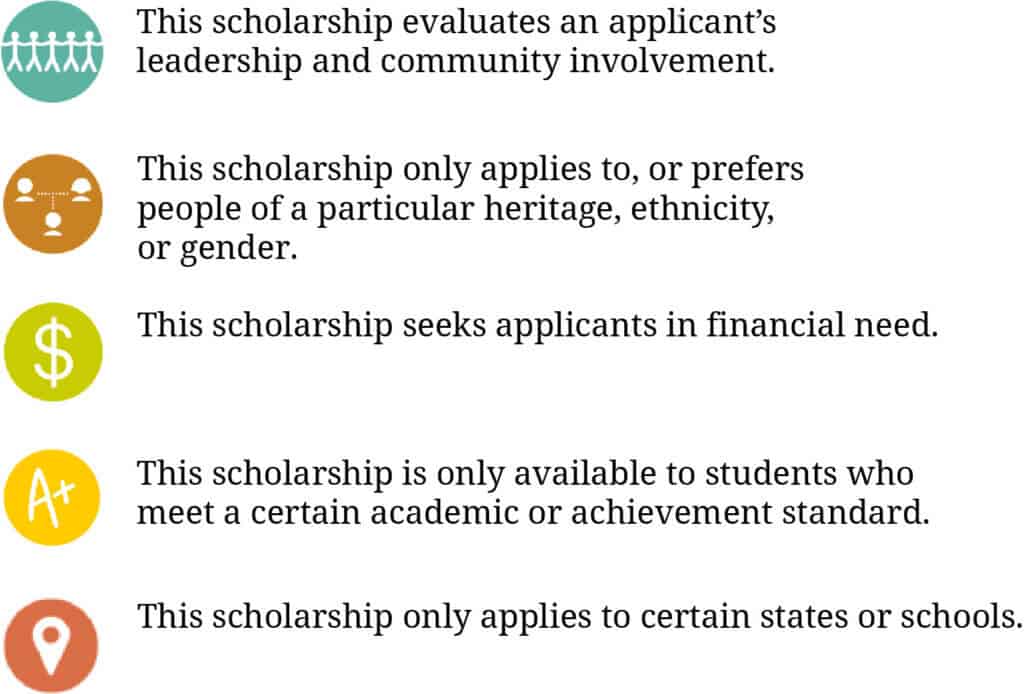
Kansas grants for college can be used by students to fund their higher education. There are several grants available, with varying requirements and standards. To apply for a grant, you should first identify your financial need. Once you have identified what your needs are, you can apply for any of these grant programs.
In addition to grants, there are also scholarships to consider. These can be either government funds or awards from private universities. Some scholarships require applicants to submit transcripts, test scores and letters of recommendations. It is important to consider these types of funds as an alternative to student loans. The money is usually used to pay tuition. However, these funds don't have to be repaid. They are often awarded on an "first come, first served" basis.
To obtain a grant, you must complete the Free Application for Federal Student Aid, or FAFSA. This form is available online and by mail. After you have completed the application, you will be able to determine your eligibility for federal and state grants.

A Kansas Comprehensive Grant may be available depending on your financial need. They are available for students who attend public and private colleges. They are available for students who have earned between $100 and $3,000. Vocational Scholarships are also available for students in vocational and career schools.
The State Scholars program is another option for financial assistance. This program grants $1,000 annually to select students who have financial need and academic potential. Students who qualify for the scholarship can apply in their last year of high school.
Kansas Career Technical Workforce grants are available for students who are enrolled in Kansas universities and colleges. This grant is available to students who are interested in pursuing a high-demand career. Kansas residents must be eligible for this grant. This grant supports high-cost fields, including associate's degrees and certificate programs.
To determine whether you are eligible for a Kansas grant, fill out the FAFSA or the Free Application for Federal Student Aid. This application can also be found on the state web site.

Kansas provides a number of scholarships for its residents. Kansas residents may apply for general scholarships or the Kansas Comprehensive Grant. If you have family members who are military personnel, you might be eligible to receive tuition waivers.
The Kansas Military Service Scholarship is available to veterans. Kansas provides a scholarship that helps military personnel and their families.
Kansas Ethnic Minority Scholarship: This state-funded scholarship is for Kansas minority students. In order to qualify, you must be a minority, have financial need, and have an academic promise. You may also be eligible for a second grant that can be used up to four years after your degree is completed.
FAQ
What is the difference in a university and college?
A university is an academic institution providing higher education. It offers postgraduate and undergraduate courses in a variety of fields.
A college is usually smaller and less prestigious than a university. It may offer fewer courses but often has its own specialist departments.
What is the average time it takes to become a teacher in early childhood?
A bachelor's degree is required in early childhood education. It takes approximately four years. You will spend two years taking general education courses required by most universities.
After completing your undergraduate studies, you will usually enroll in graduate school. This allows you to become a specialist in a specific area of study.
For example, you might choose to concentrate on learning disabilities or child psychology. After you complete your master's, it is time to apply to a teacher-preparation program.
This process may take another year. To gain practical knowledge, you will partner with experienced educators.
Final, you must pass the state exam before you can start teaching.
This process can take many years. Therefore, you won't immediately be able jump into the workforce.
What is early childhood education?
Early Childhood Education is a profession that aims to help children become happy, healthy adults. It covers everything, from teaching them to read to preparing them to go to kindergarten.
Early childhood education aims to help children learn and grow through age-appropriate experiences.
Early childhood educators often have to assess each child's developmental needs. This helps to decide whether a particular program is best for each child.
Parents also have the opportunity to meet teachers and other professionals who are familiar with working with young children in early childhood programs.
Parents play an important role in an early childhood education as well. They should be able and willing to help their children in any way they can.
Parents can also join activities to teach their children skills that will be useful throughout their lives.
Sometimes, early childhood education is also called preschool education. However this term is interchangeable with daycare centers. Prekindergarten education typically begins around three years, while early childhood education generally starts at three.
How can I get scholarships?
To help pay college expenses, scholarships are grants. There are many kinds of scholarships. These are:
-
Federal Grants
-
State Grants
-
Student Loans
-
Work Study Programs
-
Financial Aid
Federal grants are made directly by the U.S. government. Federal grants are subject to certain conditions. For example, you must demonstrate financial need.
Each state offers state grants. State grants can be offered by each state based upon financial need, while others are given for specific purposes.
Banks and other lending institutions can issue student loans. Students typically borrow money to cover costs such as tuition and living expenses.
Employers are encouraged to employ qualified students through work-study programs. Employers must pay workers at least minimum wage.
Financial aid covers the majority or all of the tuition costs for low-income families.
Statistics
- “Children of homeowners are 116% more likely to graduate from college than children of renters of the same age, race, and income. (habitatbroward.org)
- These institutions can vary according to different contexts.[83] (en.wikipedia.org)
- Data from the Department of Education reveal that, among 2008 college graduates, 92.8 percent of humanities majors have voted at least once since finishing school. (bostonreview.net)
- They are more likely to graduate high school (25%) and finish college (116%). (habitatbroward.org)
- And, within ten years of graduation, 44.1 percent of 1993 humanities graduates had written to public officials, compared to 30.1 percent of STEM majors. (bostonreview.net)
External Links
How To
Why homeschool?
There are many factors to consider when deciding whether to send your child to school or homeschool.
-
What type of education are you looking for? Are you looking for academic excellence, or social skills?
-
What level of involvement do you desire to have in your child's education and learning? Are you interested in keeping up with what your child does? Do you prefer to stay informed about what your child is doing?
-
Is your child a special needs child? What can you do to help your child with special needs?
-
Can you manage the time of your child? Do you have the time and commitment to teach your child at home each day?
-
What topics will you cover? Math, science, language arts, art, music, history, geography, etc. ?
-
How much money can you afford to educate your child?
-
Is it possible for your child to start school at an early age?
-
Your child will need a place to live. This includes finding a space large enough for a classroom, as well as providing adequate facilities such as bathrooms and kitchens.
-
What is your child’s approximate age?
-
When does your child go down to sleep?
-
When does he/she finally wake up?
-
How long does the journey take from point A, to point B?
-
How far is your child's school from home?
-
How far is your home from your child's school?
-
How will you transport your child to and from school?
-
What are some of these benefits?
-
What are the downsides?
-
Who will supervise your child when he/she is outside?
-
What are your expectations of your child?
-
What type of discipline do you want?
-
What curriculum would you choose?
Homeschooling can be done for many reasons. Some of them include:
-
Your child is unable to attend traditional schools because of learning disabilities.
-
You would like to offer your child an alternative educational system.
-
You would like more flexibility with your scheduling.
-
Avoid high tuition fees
-
You feel your child is getting a better education than you could in a traditional school.
-
You believe you can teach your children better than any teacher in a traditional school setting.
-
You don't love the way the school system operates.
-
You are uncomfortable with the rules and regulations in the school system.
-
You want your child with a strong work ethic.
-
You want your child to have the freedom of choosing which courses they take.
-
You want individual attention for your child.
Other benefits of homeschooling include the following:
-
There are no worries about uniforms or books, pencils, papers, or other supplies.
-
You can customize your child's education according to his/her interests.
-
Parents can spend more time with their children when they homeschool.
-
Homeschooled students are more likely to learn faster than their peers, as they aren't distracted by other people.
-
Homeschoolers score higher on standardized exams.
-
Homeschool families tend to be happier overall.
-
Homeschool students are less likely drop out of school.